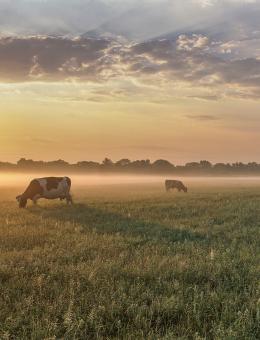
SEEKING A TRADE DEAL IN A LAND DOWN UNDER
Published 2 June 2021
The Norfolk MP and Secretary of State for International Trade, Liz Truss, looks set to sign the first post-Brexit trade deal; a deal which doesn’t simply replicate that which the UK enjoyed as an EU member. The government is proposing a zero-tariff / zero-quota trade deal with Australia, to be phased in over a 15 year period.
The reported deal has met with a wealth of concern and criticism in recent days, particularly from farmers and environmentalists, with stakeholders in the beef and lamb sectors particularly concerned that the deal will result in the driving down of prices.
With imports from Australia currently subject to tariffs, the price of imported beef and lamb in shops and supermarkets is sustained at a competitive level. Food in the UK is often produced at higher standards (and cost), and on a smaller scale than the much larger producers in Australia. Granting large scale Australian producers free access to the UK market is likely to see the price of imported beef and lamb products decrease, increasing competition for UK producers and risking putting many livestock farmers out of business.
Reports suggest that the government is trying to get a deal over the line in time to be signed at the forthcoming G7 Conference in just two weeks’ time. The perceived rush to get the deal agreed before then is very concerning, given the number of outstanding questions.
In all likelihood this deal will act as a blueprint for future trade deals with other countries, such as the United States, and it is vital that the terms are given due consideration and the correct standards are set.
What safeguards will be included to ensure that the high environmental, animal welfare and food safety standards that UK farmers are held to are also met by competitors? Where is the new Trade and Agriculture Commission (TAC) whose role it is to scrutinise trade deals before they are signed? The TAC report of March 2021 spoke of the need for government to set out a list of core standards that would be safeguarded in all trade deals. Yet we have seen no government response to this, nor an explanation as to why those recommendations are not being incorporated.
The negotiations with Australia have brought the competitiveness of UK agriculture into sharp focus, and in order to keep up with increasing competition from a larger market the industry is going to need to increase productivity year-on-year.
But how does the government intend to support farmers in adapting to global trade? Where are the proposals for properly funded domestic strategies to increase productivity on farms? When will a full assessment of the regulatory burdens impacting a farmer’s ability to produce most efficiently be undertaken?
Surely these measures should sit alongside the discussions around free trade as part of a wider, considered approach, aimed at ensuring UK farmers are ready for the changes to come. How will the economic impact of the phased deal with Australia be monitored?
For those farmers who voted to leave the European Union, citing access to new markets as a key opportunity, I dare say this is not quite what they had in mind, and the government must do more to ensure that the interests of one of the UK’s key industries are properly protected.
Charlotte Webster is associate and senior rural surveyor at Arnolds Keys - Irelands Agricultural.
Share this story
Arnolds Keys Blog

How will the rising inflation rates impact young adults, capital values and lenders
28 May 2021
There is now a whole generation of adults who have never lived through a period of high inflation, and who have only ever known rock-bottom interest rates. Read more >

COASTING TO BETTER MENTAL HEALTH
24 May 2021
Perhaps it is the fact that so many of us have experienced emotions such as fear, isolation, uncertainty and sadness during the long months of lockdown, but somehow Mental Health... Read more >

A REAL DANGER THAT RENTERS REFORM BILL COULD END UP HURTING THE VERY PEOPLE IT IS MEANT TO HELP
17 May 2021
As predicted, Tuesday’s Queen’s Speech in Parliament signalled movement in the introduction of a Renters Reform Bill, with the intention of enhancing tenants’ rights in the private rental sector. Read more >

GETTING FACE-TO-FACE IN A POST-COVID WORLD
14 May 2021
The UK’s largest building society, Nationwide, has made headlines by announcing that it is to allow 13,000 of its office staff to choose where they work. Read more >
